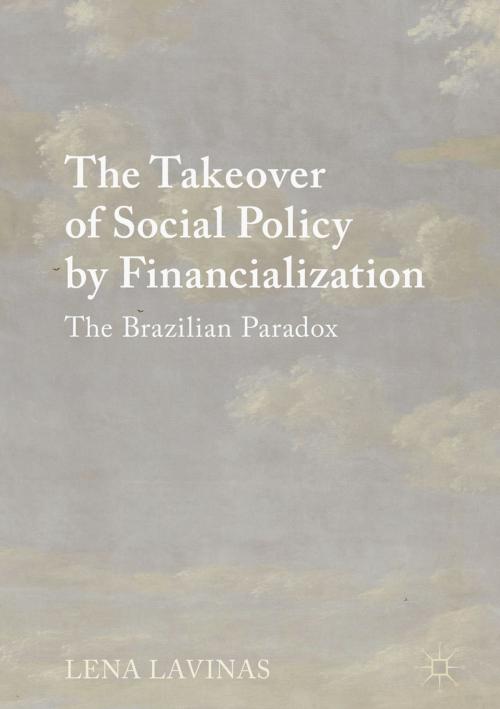The Takeover of Social Policy by Financialization
The Brazilian Paradox
Business & Finance, Economics, Public Finance| Author: | Lena Lavinas | ISBN: | 9781137491077 |
| Publisher: | Palgrave Macmillan US | Publication: | March 25, 2017 |
| Imprint: | Palgrave Macmillan | Language: | English |
| Author: | Lena Lavinas |
| ISBN: | 9781137491077 |
| Publisher: | Palgrave Macmillan US |
| Publication: | March 25, 2017 |
| Imprint: | Palgrave Macmillan |
| Language: | English |
This book critically addresses the model of social inclusion that prevailed in Brazil under the rule of the Workers Party from the early 2000s until 2015. It examines how the emergence of a mass consumer society proved insufficient, not only to overcome underdevelopment, but also to consolidate the comprehensive social protection system inherited from Brazil’s 1988 Constitution. By juxtaposing different theoretical frameworks, this book scrutinizes how the current finance-dominated capitalism has reshaped the role of social policy, away from rights-based decommodified benefits and towards further commodification. This constitutes the Brazilian paradox: how a center-left government has promoted and boosted financialization through a market incorporation strategy using credit as a lever for expanding financial inclusion. In so doing, it has pushed the subjection of social policy further into the logic of financial markets.
This book critically addresses the model of social inclusion that prevailed in Brazil under the rule of the Workers Party from the early 2000s until 2015. It examines how the emergence of a mass consumer society proved insufficient, not only to overcome underdevelopment, but also to consolidate the comprehensive social protection system inherited from Brazil’s 1988 Constitution. By juxtaposing different theoretical frameworks, this book scrutinizes how the current finance-dominated capitalism has reshaped the role of social policy, away from rights-based decommodified benefits and towards further commodification. This constitutes the Brazilian paradox: how a center-left government has promoted and boosted financialization through a market incorporation strategy using credit as a lever for expanding financial inclusion. In so doing, it has pushed the subjection of social policy further into the logic of financial markets.















